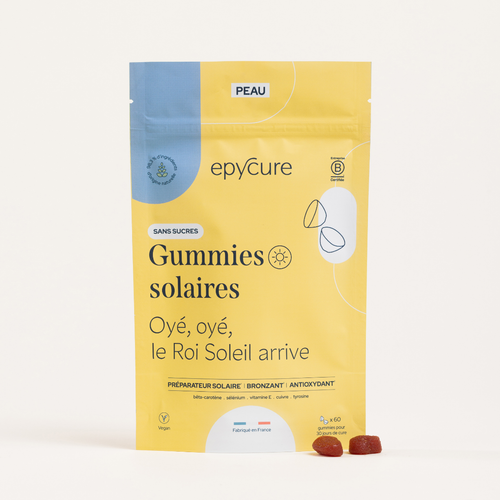Vitamin A (or retinol) is a powerful antioxidant that plays a key role in many biological processes: vision, epidermal keratinization, cell differentiation.
As an essential micronutrient, our body cannot manufacture it and therefore its intake must be included in our diet. It is stored in large quantities in the body , either in the form of retinol (its free and active form), or in the form of provitamin A (precursor of vitamin A), such as beta-carotene, which the body then transforms according to his needs.
Vitamin A from food is stored in the liver until the body needs it. It then binds to proteins before being transported where it is needed. It is involved in numerous metabolic chains. Vitamin A plays an essential role in vision, differentiation and cell growth. Therefore, it helps maintain the skin in good condition. In addition to its contribution to iron metabolism, Vitamin A plays a role in immunity.
Its main benefits
- It improves vision: it helps maintain a healthy cornea, and helps the eyes adapt to changes in brightness and see in the dark by acting on the cells of the retina.
- It promotes the growth and repair of tissues: in the event of injury, it promotes the healing of the skin and in the event of a fracture, the reformation of bones. It is obviously essential for children during their growth period. It also helps prevent infections and stimulates the immune system. Indeed, the cells of the skin and mucous membranes that line the respiratory tract, digestive tract and urinary tract act as a barrier and constitute the body's first line of defense against infections. Vitamin A maintains its functions.
-
It contributes to skin health: it stimulates the renewal of skin cells:
undefinedundefined -
It has antioxidant properties: beta-carotene, the best-known precursor of vitamin A, belongs to the carotenoid family, which are powerful antioxidants exerting a preventive action against a certain number of degenerative diseases.
It protects the body against damage caused by free radicals and against the irritating effects of tobacco and pollution. It has also demonstrated a protective effect against ulcers and high blood pressure.
The best sources
The two main forms of vitamin A come from different sources:
- Preformed vitamin A (or retinol): it is mainly found in foods of animal origin such as cod liver oil, quality animal liver, egg yolks and non-industrial dairy products.
- Provitamin A : it is found, mainly in the form of beta-carotene, in all orange or yellow fruits and vegetables (carrots, apricots, sweet potatoes) and in green leafy vegetables.
Vitamin A excess and deficiency
- Too much causes nausea, fatigue, sleep disturbances, dry skin, itching, hair loss, muscle pain, headaches or even liver problems in cases of chronic poisoning. It is for these reasons that any supplements such as dietary supplements must be limited to 1000 micrograms (µg). During pregnancy, an excess of vitamin A can cause complications for the fetus.
- Vitamin A deficiencies are common in undernourished countries. They can cause significant symptoms, including eye problems.
Daily vitamin A requirements:
The recommended serving size would be around 1 mg, depending on age, gender and physiological conditions.



